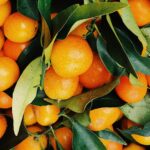U.S.: Florida scientists developing disease-resistant seedless watermelon

Scientists at the University of Florida (UF) seem to have found a way to increase the disease resistance of seedless watermelons while still retaining the fruit's flavor.
During a study, the team grafted seedless watermelon onto squash rootstocks to ward off soil-borne diseases such as Fusarium wilt.
Seedless watermelon varieties are far more susceptible to Fusarium than seeded varieties.
Grafting is a useful tool to manage soil-borne diseases, but the researchers had been concerned that if they grafted watermelon onto squash rootstocks, they might reduce the quality and taste.
Overall, study results showed no loss in taste and major fruit quality attributes like total soluble solids and lycopene content, lead author Xin Zhao said.
Consumers in UF taste panels confirmed the flavor remained largely consistent between grafted and non-grafted plant treatments under different production conditions.
Furthermore, Zhao said that compared with the non-grafted seedless watermelons, plants grafted onto the squash rootstocks exhibited a consistently higher level of flesh firmness.
“We are continuing our grafted watermelon research to optimize management of grafted watermelon production, maximize its full potential and seek answers to economic feasibility,” she said.
Still to come is a paper that specifically tells researchers whether they warded off Fusarium wilt under high disease pressure, Zhao said.
Grafting with selected rootstocks as a cultural practice is viewed as an integrated disease management tool in the toolbox for watermelon growers to consider when dealing with Fusarium wilt “hot spots” in the field, she said.
However, most squash rootstocks are generally more susceptible to root-knot nematodes, a potential challenge with using grafted plants. Other UF researchers are said to be tackling that issue.
In 2010 Florida accounted for 18% of U.S. watermelon production, 23% of its value and 19% of national watermelon acreage.
The new study is published in the Journal of the Science of Food and Agriculture. The Florida Specialty Crop Block Grant Program funded the project.
Photo: www.shutterstock.com















































